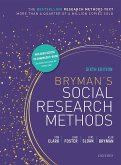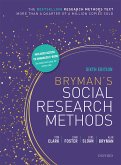

Ähnliche Artikel


Gebundenes Buch
An Interpretivist Guide
25. August 2015
Taylor & Francis

Gebundenes Buch
Practical Examples and Guidance for Qualitative Researchers
29. August 2018
Taylor & Francis

Broschiertes Buch
Februar 2012
Sage Publications
56139096,B05924P



Gebundenes Buch
A Reader
8. August 2023
Bristol University Press


Gebundenes Buch
An Applied Perspective
12. September 2024
Cambridge University Press

Gebundenes Buch
A Survival Guide
3rd edition
28. Februar 2023
Bristol University Press
Ähnlichkeitssuche: Fact®Finder von OMIKRON
